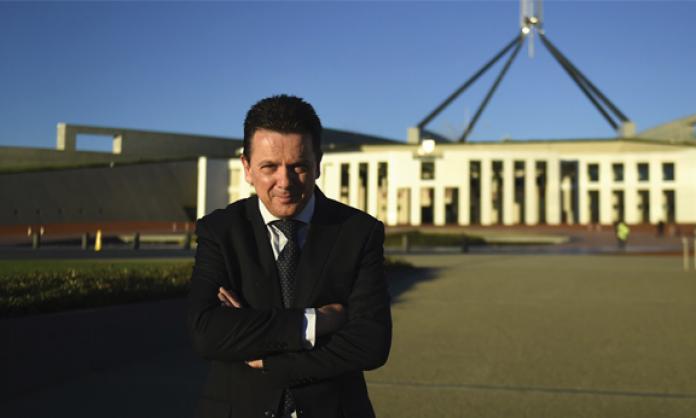A recent Newspoll indicated that 15 percent of voters plan to support independent candidates or a micro-party in the election – the highest level of support for such candidates during an election campaign in the poll’s 31-year history.
With the alternation of Liberal and Labor governments imposing the same neoliberal policies, it’s not surprising that a rising number of people are looking for something else. When so much in political life emphasises that voting is the only way to change things, independents can seem like the way to go.
But there is nothing progressive about replacing a non-choice between the right wing politics of both Labor and Liberal with a hung parliament reliant on a small number of mostly right wing independents. The prospect of such MPs holding the balance of power should be a cause for concern.
And make no mistake, most of them are right wing. A background in the Liberal or National Parties themselves should be something of a giveaway that there is nothing virtuous about being “independent”, “non-conventional” or “minor”.
In one awful example, the reactionary Bob Katter’s Australian Party had a couple of unions who were sick of the Labor government’s privatisations and sackings singing its praises in the 2012 Queensland elections.
Yet when he was a National Party member of the Queensland parliament, Katter was a fervent supporter of the rabidly right wing premier, Joh Bjelke-Petersen. Katter opposed the Human Rights (Sexual Conduct) Act, which decriminalised homosexuality in Tasmania. In 1996, he supported his National Party colleague Bob Burgess’s comments which described Australian citizenship ceremonies as “dewogging”. Katter described critics of Burgess as “little slanty-eyed ideologues who persecute ordinary average Australians”.
In the current election campaign, Nick Xenophon is considered the independent most likely to do well. Given his right wing politics, there will be nothing positive if he does.
As early as 2012, when Labor was still in office, Xenophon attempted to attack penalty rates through a parliamentary bill to amend the Fair Work Act. He is going to this election promising to support the government’s $50 billion tax cuts for business and to maintain his longstanding support for the Coalition’s border protection policy.
The ex-LNPers and Xenophon give the lie to another illusion about independent politicians – that they are somehow outside mainstream party politics. A 2010 Parliamentary Library research paper on the history of independents in Australian parliaments concluded: “The greater number of independents elected has, therefore, not resulted in particularly ‘different’ people being elected … [W]hile they are not party insiders, by definition, nor are they political outsiders”.
Even leaving aside Xenophon’s membership of the Young Liberals while he was studying law, he had spent a decade as a member of the South Australian parliament before he entered the senate in 2007.
Ricky Muir stands out as an apparent exception to all this.
Muir was a genuine outsider. Having discovered the Motoring Enthusiasts Party only months before the election and being preselected without having met the party leaders, he was derided as a “bogan” by the political elites. Good grief, he didn’t even own a suit!
More importantly, he stood for more left wing policies than those any of the other independents came close to – opposing the attacks of the 2014 budget in class terms, opposing the ABCC, changing from homophobia to support for marriage equality, even showing some genuine remorse about refugees.
But an army of Ricky Muirs wouldn’t save us.
Even with the best of intentions, what can independents achieve? Over and over it turns out to be procedural reforms like the chance to move short-lived private members’ bills, speak against government bills, or instigate and participate in parliamentary inquiries that are ignored. None of these have prevented the relentless imposition of neoliberal policies.
In general they are opportunists out to keep their bums on the parliamentary seats first and foremost. Hence proclamations of their willingness to do deals with either Labor or Liberal if it will give them a seat at the table.
Illusions in independents are born of dissatisfaction with the anti-working-class policies of Liberal and Labor, combined with a lack of confidence that the mass of workers can act in our own defence. It will take rebuilding a sizeable movement outside parliament – most importantly a mobilisation of the trade unions – to undermine these illusions.









